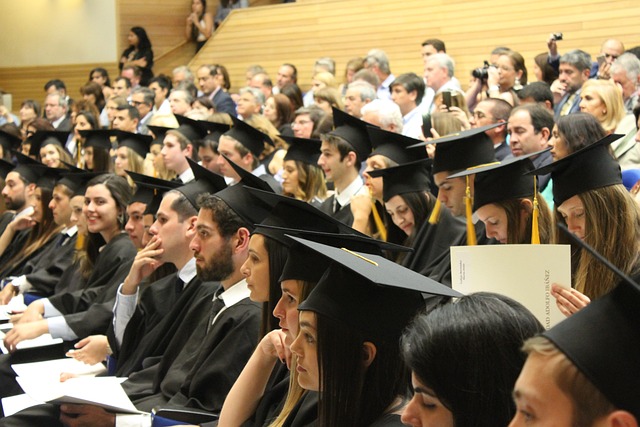Resources to Help Military Bridge the Gap to Higher Education

Whether you are interested in pursuing a completely different job from the one you had in the military, gaining civilian credentials in your field, or just wanting to learn something new, optimizing your education opportunities is smart.
Do you know about the schools taking additional steps to help you ease your way back into the classroom?
Higher Education Resources for the Military
Whether they offer veterans’ orientations or prep classes, taking advantage of these can help you get off to a great start and reduce getting tripped up as you forge ahead with your academic journey. Learn more about higher education resources for the military below.
Veteran-Specific College Orientation
Orientations for traditional students are nothing new, and in many cases, they are mandatory. And for good reason. High school students starting higher education undergo drastic life changes and an entirely new learning environment. Mostly, they’re teenagers and may be leaving the family home, learning to budget their finances, and managing their own time for the first time. That’s not you.
That’s not to say that these traditional orientations aren’t helpful for veterans and military learners.
They often provide valuable insights into the campus and school environment you will be attending. They may allow you to meet with school administrators, which will be intrinsic to the college and university experience.
Your needs are likely different than those of the 19-year-olds you will be sitting next to you in English 101. You’re serious about school and gaining the education and skills you need for your next chapter, so a veteran-centric orientation makes sense.
Florida State University (FSU)
Florida State began its veteran orientation 12 years ago. They have an interesting blend of prep options, including an online orientation and a for-credit course to get you started. The orientation includes basic resource information, while the course focuses on transitional resources and strategies to grow a strong campus community for veterans.
Over the years, the program has evolved from one geared toward their entire veteran population to one more individualized based on the individual student’s needs.
The orientation begins with current student veterans making the initial outreach through a phone call and a snail-mail welcome card with a QR code. This will direct you to information and events that can ease a successful orientation to FSU.
The school rounds it out with an information session and a large welcome party incorporating music, food, and door prizes. There is also a separate orientation for their distance learning students.
Syracuse University (SU)
Syracuse’s annual “Welcome Orientation” builds on the fundamentals of its traditional student orientation but is tailored to the needs of veterans.
Hosted by their National Veterans Resource Center (NVRC), the program begins with breakfast, followed by a briefing on campus life and tips on accessing their offerings for incoming and returning student veterans. A resource fair also permits veterans to meet and interact with on-campus and off-campus veterans service organizations. The day concludes with a networking event for veterans to meet peers, faculty, and staff.
San Diego State University
San Diego State’s veterans and military orientation is mandatory for all new students and includes detailed information on various VA educational benefits packages. The program also has several other sessions, including academic advising, financial aid, and student services. The orientation also includes networking opportunities with fellow veterans and staff, and campus tours.
Santa Fe College
At Santa Fe, new military learners also have a separate orientation from the general population. During the course, you will learn about both on- and off-campus programs to enhance your academic experience.
They make it super convenient, as it is offered virtually and has 4 different session date options. You will need to register with your Santa Fe Zoom account, and be sure to be prompt on the call. Those who are more than 15 minutes late will need to reschedule another session.
Kutztown University
Kutztown has a mandatory veteran’s orientation for those using VA educational benefits as part of their new student orientation. It’s recommended that you register early to keep you on track as you access your benefits.
Topics include benefit eligibility, how to file your JST, and information on the documents needed to receive your military benefits. Following your completion, you will schedule an appointment with a veteran’s staff member to answer any questions.
George Washington University – Office of Military and Veteran Student Services (MVS) Orientation
GW is home to over 1,400 military-affiliated students, who have access to 3 virtual orientations, 1 in-person session, and a welcome-back social and open house held at their military community center.
Both orientations are voluntary, and if you can’t attend, you can access the presentation slides on their website. The slides cover career preparation, resources located in their Veteran Success on Campus (VSOC) program, VSOC advisors’ benefits processing and certification, Yellow Ribbon guidance, and study abroad opportunities.
Schools with Preparatory Courses for Student Veterans
Some schools offer actual courses, and in some cases, for credit! Below, we take a look at a few.
Columbia University – School of General Studies
Veterans preparing for college or university can access a free Massive Open Online Course (MOOC) developed by Columbia’s Center for Veterans Transition and Integration (CVTI). The Attaining Higher Education (AHE) curriculum is taught by various department staff, including financial aid, admissions, and transition services. The self-paced program enables students to learn when and where it is convenient.
It also includes videos from current students and a library of supplemental resources. Upon completion, veterans can apply to contribute to the course as instructor peers.
According to the Director of Higher Education Transition and Partnerships at CVTI, “We want all of our service members and veterans to succeed in their transition to higher education. This course fills a much-needed gap, offering correct information and robust support so that they can navigate this complex transition successfully.”
California State University, San Marcos
At San Marcos, first-year students, including veterans, have access to a 3-credit course designed to streamline the transition to college. The “First Seminar,” a section built for veterans, is an in-person lecture focused on student development, career exploration, health and well-being, and technology. While not mandatory, the school claims a more than 85% graduation rate for attendees.
University of Connecticut
UConn offers a 1-credit course at its main campus at Storrs to provide veterans with university-specific information to help meet their needs and engage with other military community members. To be eligible for credit, you must not have taken another “First-Year Experience (FYE)” class at the school and receive permission to affirm your qualification. The course is offered each Fall semester.
Princeton University
While many of the veteran orientation courses are for first-year students, Princeton takes a different approach by offering both online and residential options These include their 7-week fully online Freshman Scholar Institute (FSI) and a residential, invite-only option where select students, including transfer and military students, spend 8 weeks on campus acclimating to campus life while also earning college credit.
Military learners may also attend an in-person pre-orientation before the one for traditional incoming students. And to give you an additional leg up, Princeton connects you with a peer mentor from its veterans’ alumni group to help you plan your short—and long-term goals.
Warrior Scholar Program (WSP)
There are also nonprofit organizations that some colleges and universities partner with to help incoming students develop the skills they need to thrive at highly selective schools like Harvard, Yale, Princeton, and Columbia. WSP holds one-week “academic boot camps” over the summer, and each has a specific focus area, like STEM and humanities.
The classes are taught by faculty from the host school, which provides the coursework, materials, and room and board free of cost. You do not need to be an incoming student at the school where the program is offered to attend. However, there is an application process to qualify to attend their over 25 annual cohorts.
Testing and Tutoring
Some colleges and universities have placement tests to assess the skills of incoming students. For two-year schools, this is often through ACCUPLACER, which determines whether remedial classes are needed.
If you do, it can help with some of those hard-earned benefits quickly, so let’s try to avoid that by understanding some strategies to get you academically prepared to start school. Below are a few resources that may help.
Veterans Upward Bound (VUB)
Housed in the U.S. Department of Education, VUB is a federally funded initiative that dates back to the 1970s. Its goal is to support transitioning veterans in achieving their higher education goals.
The programs aren’t available everywhere, but if you have one near you, it is free of charge and open to all, meaning you don’t need to be a student at the host schools to access its services.
VUB locations provide remedial courses, tutoring, application assistance, and financial aid. Utilizing these resources is a great way to brush up on subjects you may need help with.
VA Chapter 36
Chapter 36 is a little-known asset that can help you plan for college. It includes counseling for areas of concern and guidance on finding the type of education or training right for you. You need to be eligible for one of the VA education benefits packages, and there’s a one-year limit on participating in the program, but if you meet the criteria, it can be a great way to help you plan your academic journey.
College Board’s ACCUPLACER Practice
If you are preparing to attend a school with placement exams, the College Board has you covered with free practice tests. You can access these on your smartphone, tablet, or desktop; they provide answers and explanations to help you better understand the ones you missed.
GCFLearnFree
LearnFree is another way to brush up on core subjects like math, reading, and technology, which are often mandatory general education courses. The self-paced platform includes over 2000 classes in more than 200 topics.
VA Tutoring
If you are in school at least half-time, the VA also has a resource to help pay for any tutoring you may need. Upon approval, your school will assign you a tutor and notify your certifying official. Qualified veterans can access up to $100 monthly for a maximum of $1200.
About the author

Wendy Ann Lang
Wendy Ann Lang is the President and Founder of Operation College Promise. Wendy regularly presents at national conferences as a subject matter expert in best practices to support the military-connected student population. She is a founding member of the Stockton University Veterans’ Advisory Board and was awarded their “Veterans’ Advocate of the Year” in 2017. From 2020 to 2024, Wendy led the Bush Institutes’ Higher Education and Employment Task Forces, focusing on contemporary initiatives to optimize student veterans' postsecondary success and reduce barriers to employment in high-demand fields.
